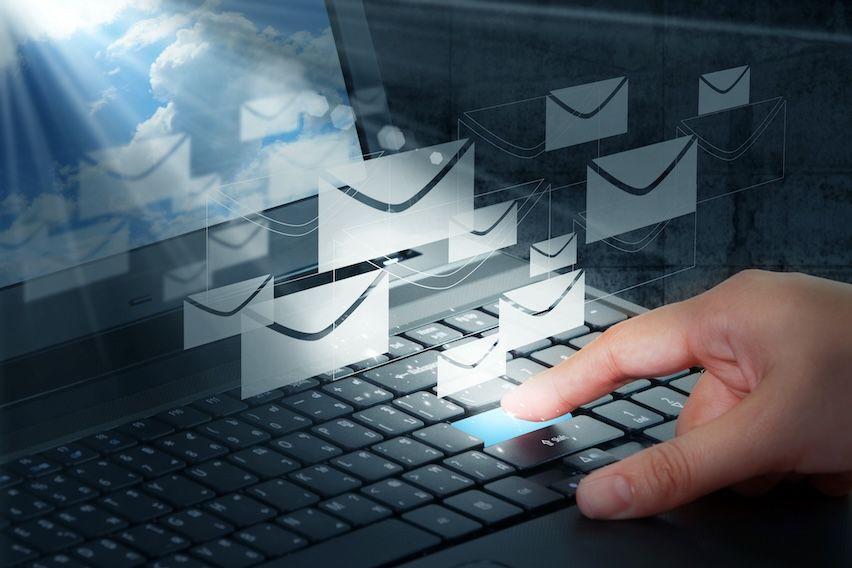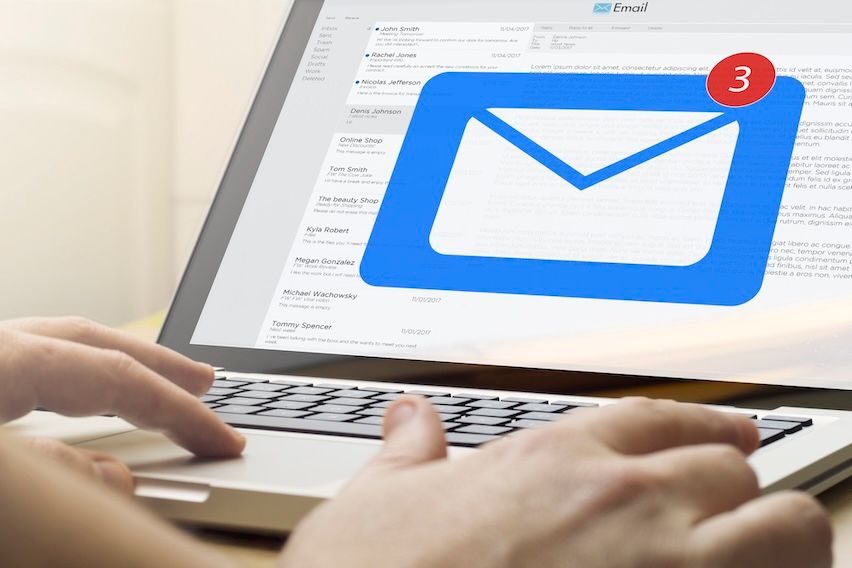Contents
the email tool that makes email marketing simple
Key Benefits of Email Marketing Automation Explained
Published: February 15, 2025
Email automation is essential for solo founders. It simplifies tasks like sending newsletters, following up on leads, and managing customer responses. This goes beyond just sending emails; it's about creating an efficient system for customer interactions.
Email marketing automation's key benefit is building stronger relationships with customers through timely and relevant communication. For solo entrepreneurs, it's more than just a convenience; it's a strategic approach to success.
We will now explore how marketing automation excels in nurturing leads and converting them into loyal customers, an advantage for any solo business owner.
Lead Nurturing and Conversion
For solo founders, turning leads into customers is a challenge. This is where the benefits of email marketing automation, particularly automated email courses, become evident. These courses serve as a marketing funnel, leading potential customers through the stages step by step.
Each email in the series should offer valuable information, tips, or insights tailored to the audience. This method goes beyond merely sharing knowledge. It builds trust. When you consistently send helpful content, you establish yourself as a knowledgeable figure in your field. Trust leads to increased engagement and, eventually, higher conversion rates.
The advantage of using automation lies in its precise timing and delivery. With the right email marketing software, you can schedule a series of emails to go out at regular intervals. This can be daily or every few days, keeping your audience engaged without overwhelming them. An optimal course runs for about 5-10 days, long enough to provide significant value but short enough to hold interest.
Typically, the email course culminates in a special offer or discount. This acts as a call to action, where nurtured leads convert into paying customers. After offering valuable insights through the course, this offer feels like a natural next step.
Manually managing such a marketing campaign, especially as your business grows, can be overwhelming. Automation makes it manageable. It enables you to handle a large number of leads efficiently. This efficiency is not just about saving time; it's also about implementing a scalable strategy. For solo founders aiming to grow their business, scalability is key, allowing for expansion without a corresponding increase in effort or resources.
Next, we will explore how the time and effort saved by marketing automation translates into cost savings, an important consideration for any business, especially for solo entrepreneurs with limited budgets.
Time and Cost Savings
Automation offers substantial time and cost savings, a vital aspect for solo founders. Every minute and penny counts when you're bootstrapping, making the automation of email tasks a strategic decision.
Think about the hours involved in crafting, scheduling, and sending emails. Automation removes this heavy load. While initially setting up an email campaign takes time, it subsequently runs on its own. This frees you up to concentrate on other critical business areas, like product development or market research, instead of dedicating hours to email management.
The financial benefits are significant as well. For a solo founder, hiring a full marketing team can be a considerable expense. Automation effectively replaces this need, acting as a 24/7 digital solution at a much lower cost, appreciably reducing labor expenses. This cost-efficiency is especially valuable for startups operating within tight budgets.
By saving time through automation, you're not just gaining extra hours. It allows you to use that time more strategically. The money saved can be redirected into other business areas needing investment.
With the time and money saved, the next step is to apply these resources to refine your marketing strategies. Here, the focus shifts to targeted communication, a key advantage of email automation.
We'll look at how enhanced segmentation and targeting are beneficial and essential for creating a more personalized experience.
Enhanced Segmentation and Targeting
Enhanced segmentation and targeting form the backbone of effective email marketing, especially for solo entrepreneurs. Automation software provides the capability for advanced audience segmentation based on customer behaviors, such as clicks within emails. This strategy ensures that each customer receives content that aligns closely with their interests and needs.
Let’s look at a practical example:
Imagine Aloha Surf, an online surf school and shop. They send out regular newsletters featuring various topics like beginner lessons, advanced surf gear, and the latest surf apparel. When a customer clicks on a link, they are automatically categorized into a specific interest group. For example, a click on beginner lessons tags them as a 'Beginner Surfer.'
Utilizing this data, Aloha Surf sends out targeted emails. Beginners receive starter tips, offers on beginner lessons, and product recommendations suitable for new surfers.
Conversely, those interested in advanced gear receive updates on high-performance equipment, advanced lessons, and exclusive surfing event invitations.
This approach ensures every customer receives personalized and relevant content. It’s efficient for the business and highly engaging for the customer. By delivering tailored content, Aloha Surf strengthens its connection with its audience. Targeted communication like this is essential for building lasting relationships, an important aspect of brand awareness.
Such personalized content enhances the customer journey, making each interaction with the brand more meaningful. This level of customization sets the stage for effective customer onboarding and continuous engagement, crucial aspects of sustaining a loyal customer base.
In the next section, we’ll discuss the role of automation in streamlining customer onboarding and maintaining ongoing engagement.
Customer Onboarding and Engagement
Effective customer onboarding and engagement are essential for developing lasting customer relationships, a critical aspect for solo entrepreneurs. Automated emails play an important part in this process. They welcome new customers and provide a stream of consistent and personalized communication that nurtures customer loyalty.
The onboarding journey starts when a customer signs up or makes their first purchase. An automated welcome email is dispatched immediately, setting a welcoming tone for the relationship. This email typically includes useful information and resources tailored to the customer’s interests, giving them a glimpse of what to expect from your community.
After the initial welcome, a series of automated messages continue the conversation. These might offer tips related to recent purchases, information about new products or services, and exclusive offers. The objective is to make each customer feel valued and acknowledged, offering content that directly addresses their needs and preferences.
This consistent and personalized approach forms the basis of customer retention. It demonstrates an understanding of their interests and a commitment to delivering value beyond just products or services. This strategy effectively transforms one-time buyers into loyal customers and, eventually, advocates for your brand.
For instance, at Aloha Surf, a customer who buys a beginner surfboard could receive a sequence of emails with surfing tips for beginners, invitations to group lessons, and special deals on surfwear. Such targeted engagement ensures that customers appreciate their purchase and feel a connection with the brand.
This exploration of consistent and personalized engagement underscores the importance of maintaining timely and relevant communication. Here, event-triggered emails emerge as an important part of email marketing. They allow businesses to react swiftly to specific customer activities or significant dates, thereby enhancing the overall experience.
In the following section, we'll examine various scenarios where event-triggered emails are used effectively as a marketing strategy, highlighting their versatility in different business contexts.
Event-Triggered Emails
Event-triggered emails are a standout feature of marketing automation, providing a highly personalized and responsive approach to customer engagement. These emails are sent in direct response to specific actions taken by customers or during notable occasions, ensuring that the communication is timely and relevant.
For instance, consider a customer who registers for a webinar but doesn't attend. An automated follow-up email containing a link to the recorded session along with an invite to future events can be sent. It could also include your social media links. This keeps the customer engaged and informed and encourages future participation.
For personal occasions like existing customers' birthdays, an event-triggered email with a customized greeting and a special discount offer can significantly enhance customer loyalty and potentially drive sales.
In another scenario, like a bookstore, customers who show a preference for mystery novels can receive marketing emails informing them about new releases in that genre. This tailored communication ensures that customers receive updates closely aligned with their interests, increasing the likelihood of additional purchases and customer feedback, and aiding in lead generation.
Event-triggered emails are effective in these specific scenarios, but they also form part of a larger suite of benefits offered by email automation. This includes enhancing time efficiency, reducing costs, and providing scalable marketing strategies. Together, these benefits underscore the overall effectiveness of marketing automation, especially for solo entrepreneurs.
Next, we will look at how these combined advantages contribute to the success of solo entrepreneurs, emphasizing the strategic importance of email automation in their growth and success.
Further Benefits of Email Marketing Automation
Automation offers a range of benefits that extend far beyond scalability and error reduction. These advantages are particularly significant for solo entrepreneurs who seek to efficiently maximize their marketing impact.
Consistency in messaging is a major benefit. Marketing automation ensures that every communication sent to your audience maintains a consistent tone and style . This uniformity is vital for building a trusted and recognizable brand identity, an essential aspect for solo founders aiming to establish a strong market presence.
Enhanced customer insights are another significant advantage. Through automation, you can track open rates and interactions within your emails. This data provides crucial insights into what resonates with your audience, allowing for the optimization of future campaigns. Understanding these engagement patterns is key to refining your content marketing strategies, ensuring that each message is tailored to the interests and needs of your audience.
Personalization is another feature of automation. By segmenting your audience and tailoring content to their preferences, you create more engaging and relevant experiences. This approach enhances the customer experience and creates deeper connections with your audience.
Together, these benefits contribute to a more effective and efficient marketing approach. They enable you to connect with your audience in a strategic and impactful way, crucial for solo entrepreneurs looking to expand their reach but needing to save time and money.
As we transition to discussing the specific features of Maildroppa, we will explore how these general benefits of email marketing automation can be effectively utilized in real-world email marketing campaigns, enhancing the marketing strategies of solo entrepreneurs.
Maildroppa's Email Automations: How They Benefit Solo Entrepreneurs
Maildroppa stands out as a user-friendly email automation tool, perfectly suited for solo founders, bootstrappers, and small businesses. Its comprehensive suite of features makes email marketing management effective and straightforward.
Drip Campaigns & Welcome Series: Maildroppa streamlines setting up welcome series. Users can easily schedule a sequence of emails to be sent automatically over time. This feature is invaluable for introducing new subscribers and progressively delivering educational content, helping to build and maintain long-lasting relationships.





